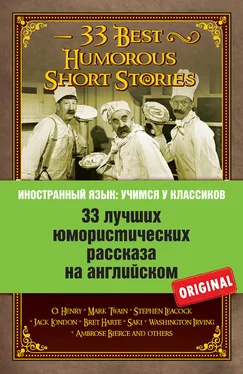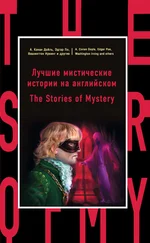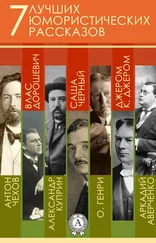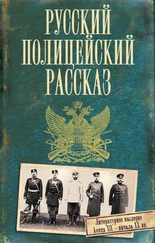How can I bear it? Alexis is to take me to Petersburg, and he has bought a beautiful house in the Prospekt, and I am to live in it with him, and we are to be rich, and I am to be presented at the Court of Nicholas Romanoff and his wife. Ah! Is it not dreadful?
And I can only think of Otto floating down the stream with the easel about his neck. From the little river he will float into the Dnieper, and from the Dnieper into the Bug, and from the Bug he will float down the Volga, and from the Volga into the Caspian Sea. And from the Caspian Sea there is no outlet, and Otto will float round and round it for ever.
Is it not dreadful?
Hannah of the Highlands: or, The Laird of Loch Aucherlocherty
’ Sair maun ye greet, but hoot awa!
There’s muckle yet, love isna’ a’—
Nae more ye’ll see, howe’er ye whine
The bonnie breeks of Auld Lang Syne!
The simple words rang out fresh and sweet upon the morning air.
It was Hannah of the Highlands. She was gathering lobsters in the burn that ran through the glen.
The scene about her was typically Highland. Wild hills rose on both sides of the burn to a height of seventy-five feet, covered with a dense Highland forest that stretched a hundred yards in either direction. At the foot of the burn a beautiful Scotch loch lay in the hollow of the hills. Beyond it again, through the gap of the hills, was the sea. Through the Glen, and close beside the burn where Hannah stood, wound the road that rose again to follow the cliffs along the shore.
The tourists in the Highlands will find no more beautiful spot than the Glen of Aucherlocherty.
Nor is there any spot which can more justly claim to be historic ground.
It was here in the glen that Bonnie Prince Charliehad lain and hidden after the defeat of Culloden. Almost in the same spot the great boulder still stands behind which the Brucehad laid hidden after Bannockburn; while behind a number of lesser stones the Covenantershad concealed themselves during the height of the Stuart persecution.
Through the Glen Montrose had passed on his fateful ride to Killiecrankie; while at the lower end of it the rock was still pointed out behind which William Wallacehad paused to change his breeches while flying from the wrath of Rob Roy.
Grim memories such as these gave character to the spot.
Indeed, most of the great events of Scotch history had taken place in the Glen, while the little loch had been the scene of some of the most stirring naval combats in the history of the Grampian Hills.
But there was little in the scene which lay so peaceful on this April morning to recall the sanguinary history of the Glen. Its sides at present were covered with a thick growth of gorse, elderberry, egg-plants, and ghillie flower, while the woods about it were loud with the voice of the throstle, the linnet, the magpie, the jackdaw, and other song-birds of the Highlands.
It was a gloriously beautiful Scotch morning. The rain fell softly and quietly, bringing dampness and moisture, and almost a sense of wetness to the soft moss underfoot. Grey mists flew hither and thither, carrying with them an invigorating rawness that had almost a feeling of dampness.
It is the memory of such a morning that draws a tear from the eye of Scotchmen after years of exile. The Scotch heart, reader, can be moved to its depths by the sight of a raindrop or the sound of a wet rag.
And meantime Hannah, the beautiful Highland girl, was singing. The fresh young voice rose high above the rain. Even the birds seemed to pause to listen, and as they listened to the simple words of the Gaelic folk-song, fell off the bough with a thud on the grass.
The Highland girl made a beautiful picture as she stood.
Her bare feet were in the burn, the rippling water of which laved her ankles. The lobsters played about her feet, or clung affectionately to her toes, as if loath to leave the water and be gathered in the folds of her blue apron.
It was a scene to charm the heart of a Burne-Jones, or an Alma Tadema,or of anybody fond of lobsters.
The girl’s golden hair flowed widely behind her, gathered in a single braid with a piece of stovepipe wire.
‘Will you sell me one of your lobsters?’
Hannah looked up. There, standing in the burn a few yards above her, was the vision of a young man.
The beautiful Highland girl gazed at him fascinated.
He seemed a higher order of being.
He carried a fishing-rod and basket in his hand. He was dressed in a salmon-fishing costume of an English gentleman. Salmon-fishing boots reached to his thighs, while above them he wore a fishing-jacket fastened loosely with a fishing-belt about his waist. He wore a small fishing-cap on his head.
There were no fish in his basket.
He drew near to the Highland girl.
Hannah knew as she looked at him that it must be Ian McWhinus, the new laird.
At sight she loved him.
‘Ye’re sair welcome,’ she said, as she handed to the young man the finest of her lobsters.
He put it in his basket.
Then he felt in the pocket of his jacket and brought out a sixpenny-piece.
‘You must let me pay for it,’ he said.
Hannah took the sixpence and held it a moment, flushing with true Highland pride.
‘I’ll no be selling the fush for money,’ she said.
Something in the girl’s speech went straight to the young man’s heart. He handed her half a crown. Whistling lightly, he strode off up the side of the burn. Hannah stood gazing after him spell-bound. She was aroused from her reverie by an angry voice calling her name.
‘Hannah, Hannah,’ cried the voice, ‘come away ben; are ye daft, lass, that ye stand there keeking at a McWhinus?’
Then Hannah realised what she had done.
She had spoken with a McWhinus, a thing that no McShamus had done for a hundred and fifty years. For nearly two centuries the McShamuses and the McWhinuses, albeit both dwellers in the Glen, had been torn asunder by one of those painful divisions by which the life of the Scotch people is broken into fragments.
It had arisen out of a point of spiritual belief.
It had been six generations agone at a Highland banquet, in the days when the unrestrained temper of the time gave way to wild orgies, during which theological discussions raged with unrestrained fury. Shamus McShamus, an embittered Calvinist, half crazed perhaps with liquor, had maintained that damnation could be achieved only by faith. Whimper McWhinus had held that damnation could be achieved also by good works. Inflamed with drink, McShamus had struck McWhinus across the temple with an oatcake and killed him. McShamus had been brought to trial. Although defended by some of the most skilled lawyers of Aucherlocherty, he had been acquitted. On the very night of his acquittal, Whangus McWhinus, the son of the murdered man, had lain in wait for Shamus McShamus, in the hollow of the Glen road where it rises to the cliff, and had shot him through the bagpipes. Since then the feud had raged with unquenched bitterness for a century and a half.
With each generation the difference between the two families became more acute. They differed on every possible point. They wore different tartans, sat under different ministers, drank different brands of whisky, and upheld different doctrines in regard to eternal punishment.
To add to the feud the McWhinuses had grown rich, while the McShamuses had become poor.
At least once in every generation a McWhinus or a McShamus had been shot, and always at the turn of the Glen road where it rose to the edge of the cliff. Finally, two generations gone, the McWhinuses had been raised to sudden wealth by the discovery of a coal mine on their land. To show their contempt for the McShamuses they had left the Glen to live in America. The McShamuses, to show their contempt for the McWhinuses, had remained in the Glen. The feud was kept alive in their memory.
Читать дальше
Конец ознакомительного отрывка
Купить книгу












